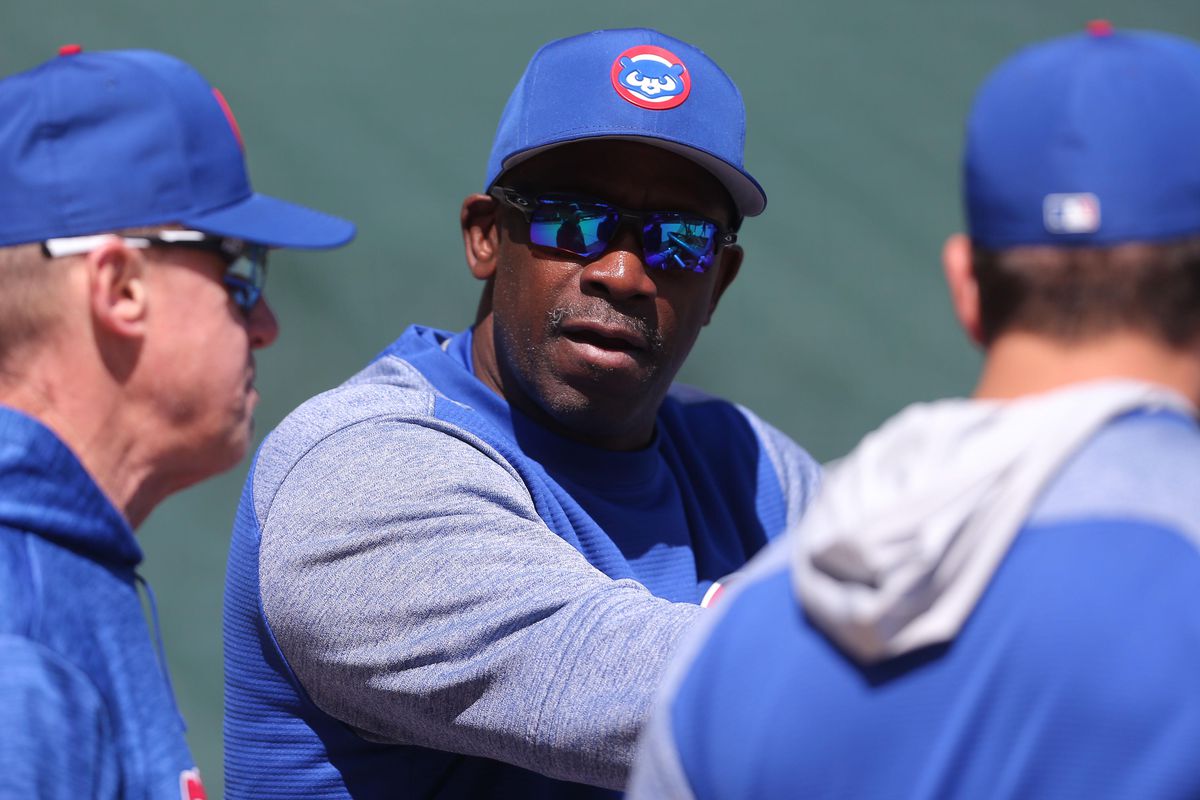Over a week ago, I wrote these words about Cubs hitting coach Chili Davis:
It’s difficult to know how or if to blame a hitting coach for one season’s worth of poor performance, but the Cubs’ firing of John Mallee and hiring of Davis has, at best, been lateral move.
I wrote this in the context of the Cubs’ myriad offensive failures in 2018, and the over-reliance on young hitters’ linear development that I interpreted as the primary cause for these failures. I was agnostic regarding Davis. I remain agnostic, since one season’s worth of funky data can hardly tell you much about a hitting coach, whose impact on a team is always sort of nebulous.
On Thursday, the Cubs announced that Chili Davis would not return as hitting coach, and that the team would be looking for a third hitting coach in three seasons. There were those who called for Davis’s head in the wake of the Cubs’ awful second-half offensive performance, and those people are surely pleased. But there are also some very smart observers and analysts who are skeptical of the move, and I believe those interpretations are justified.
A few different narrative elements have emerged in the discourse surrounding Davis’s firing, but they don’t all carry the same weight. The first is a connection of Davis’s performance with the 2018 Cubs and his performance with the 2017 Red Sox. Both teams took big steps backwards offensively, compared to the year before:
| Runs (MLB rank) | HR (MLB rank) | OPS (MLB rank) | |
| 2016 Red Sox | 878 (1st) | 208 (9th) | .810 (1st) |
| 2017 Red Sox | 785 (10th) | 168 (27th) | .736 (22nd) |
| 2017 Cubs | 822 (4th) | 223 (9th) | .775 (6th) |
| 2018 Cubs | 761 (9th) | 167 (22nd) | .744 (10th) |
The numbers aren’t pretty. But they also only tell part of the story, and “part of the story” is hardly enough from which to draw definitive conclusions on a hitting coach.
The 2017 Red Sox lost David Ortiz, who hit 38 homers and led the AL in doubles, RBI, slugging percentage, and OPS. The Red Sox front office didn’t do much to replace Ortiz, regardless of the performance of Mookie Betts, Xander Bogaerts, and Andrew Benintendi (all of whom submitted worse 2017 seasons than they did in 2016). Also, if Davis is to be demeritted for the 2017 team’s performance, he deserves credit for the 2016 team’s league-best performance in many key categories. Davis also coached Boston’s 2015 squad, which featured very good full-season performances from the 22-year-old Betts and Bogaerts, and a good partial-season performance from the 25-year-old Jackie Bradley, Jr. For Bogaerts and Bradley, it was their first season of above-average offensive performance at the major-league level.
Even Davis’s stint in Oakland from 2011-2014 was successful. In both 2013 and 2014, the A’s scored the fourth-most runs in the majors. Both of those teams made the playoffs, and it was in those two years that Josh Donaldson evolved into one of the majors’ best hitters.
In short, Davis’s teams have been collectively very good, offensively, and he has had success working with young hitters. There might be some truth to the narrative that Davis was responsible for the 2017 Red Sox’s backwards slide, but there is enough data supporting exactly that it wasn’t his fault at all to make that argument muddled, at best.
The second emergent factor in the Davis discourse is a lingering, anonymous dissatisfaction from Cubs hitters regarding Davis’s coaching. The only source of this information is a tweet from the Score’s Dan Bernstein, who alludes to an anonymous source. If this is true, then that is more substantial grounds for Davis’s firing than the inconclusive data displayed above. However, BP Wrigleyville’s Sam Fels has an in-depth analysis of the changes some of the Cubs’ young hitters made—or didn’t make—this year vis-à-vis Davis’s philosophy, and he comes away similarly skeptical of the decision to fire Davis.
Ultimately, this move isn’t going to move the needle significantly for the 2019 Cubs in either direction. My analysis of Davis’s performance is the same regardless of the Cubs’ decision:
There’s a good chance that Davis’s 2017-2018 seasons reflect poorly on him only if you ignore the fact that the myriad young hitters he’s coached have an incredibly diverse set of skills and approaches that have borne non-linear development.
Prior to 2018, Theo Epstein and the front office invested their trust in Davis and a cadre of young hitters, and that trust simply didn’t pay off. Epstein’s own comments following the team’s playoff exit indicate that he is aware of the mistakes he and others made regarding the team’s strategy going into 2018. With Davis’s departure, the Cubs are making their first step toward addressing the offensive issues that plagued this past season. In order to remake this offense into force for 2019 and beyond, the Cubs must follow Davis’s firing with changes to the personnel actually taking those at-bats.
Lead photo courtesy Dennis Wierzbicki—USA Today Sports
